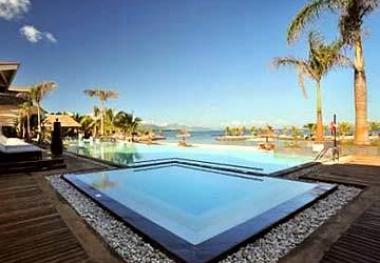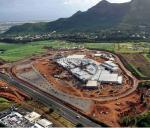Mauritian property offers top value
 South Africans who have in recent years bought holiday pads in Mauritius, typically with price tags exceeding R10m, have been handsomely rewarded on the capital growth front.
South Africans who have in recent years bought holiday pads in Mauritius, typically with price tags exceeding R10m, have been handsomely rewarded on the capital growth front.
South Africans who have in recent years bought holiday pads in Mauritius, typically with price tags exceeding R10m, have been handsomely rewarded on the capital growth front.
While most of the world’s housing markets are still recovering from the credit crisisinduced property slump, average prices in integrated resort scheme developments have increased by 30%-40% since 2005, when the local government opened the island’s housing market to foreigners, figures from the Mauritius Board of Investment show.
Board of Investment assistant director Sachin Mohabeer says prices in integrated resort scheme developments have no doubt been supported by the fact that foreign property buyers and their dependants qualify for permanent residence. That is a particularly attractive incentive for wealthy South African buyers who are increasingly looking for a cross-border bolt hole and safe haven for their cash.
Mr Mohabeer says South Africans accounted for 21% of all integrated resort scheme sales last year. French and British buyers made up 32% and 14% respectively, with the rest mostly from China, Australia and Russia.
Approved schemes are allowed to sell freehold property to foreigners for a minimum 500,000 (about R5.5m). The average sales price achieved last year across the island’s eight approved resorts (either completed or under construction) was $1.2m, says Mr Mohabeer.
A total of 661 units across the eight developments have been sold to offshore buyers since 2005. Resorts that are either completed or under construction include Tamarina Golf Estate and Beach Club on the west coast, Villas Valriche on the island’s relatively undeveloped south coast near Bel Ombre, La Balise Marina at Black River on the west coast, Anahita World Class Sanctuary on the east coast, and Azuri in the north near Grand Baie. Le Parc de Mont Choisy was launched in the heart of Grand Baie late last year, and two other schemes were recently given the green light by the Board of Investment.
South African buyers have not only achieved healthy capital growth on their Mauritian resort investments; they have also scored significantly from rand depreciation. Timo Geldenhuys, sales director at Villas Valriche and La Balise Marina, says when the first homes were sold at Villas Valriche in early 2008 the rand was at R6.50/.
“That’s a 70% gain over six years given the current exchange rate of about R11.”
Mr Geldenhuys says although sales slowed in 2009-10 following the credit crisis, investors have achieved an average 30% growth on resales at Villa Valriche over the past five years, with average prices increasing from 1.2m in 2008 to the current $1.5m.
At La Balise Marina, the only development in Mauritius that offers freehold title with direct access to the sea, two-bedroomed duplexes sold off plan three years ago for $600,000 have just been resold at $820,000.
At Anahita on the east coast, re-sales have achieved average returns of 14%-27% a year, says Chris Immelman, MD of Pam Golding Properties’ international and projects division. He who is responsible for the marketing of both Anahita and Le Parc de Mont Choisy.
However, the extent of future capital growth is likely to depend largely on the rate at which the Mauritian government approves new schemes. Gilbert EspitalierNoel, a director of Mauritian Stock Exchange-listed ENL Group, which is the developer of both Villas Valriche and La Balise Marina, says although no restriction has been placed on the number of integrated resort scheme developments that could be built, the market is unlikely to be flooded with stock.
“We are currently at less than 700 units and we may get to 1,000 within the next three to five years. But there is no way that we will ever get to 6,000,” says Mr Espitalier-Noel. Obtaining rezoning and development rights in Mauritius is simply too onerous and lengthy a process, he says, which does not make it easy for developers to get schemes off the ground. It took 30 months to obtain final approval for Villas Valriche.
Besides, he says, banks are legally obliged to offer buyers a guarantee of completion. They are therefore wary of giving the go-ahead to any integrated resort scheme development before a high level of pre-sales has been achieved.
Mr Espitalier-Noel says Mauritian law dictates that developers that sell property off plan have to provide a bank guarantee that the unit will be completed as specified in the buying contract. If the developer goes bust or fails to deliver what was promised, buyers have the right to claim their money back.
Rob Hudson, MD of SA-based property marketing and sales consultancy Hayes, Matkovich & Associates, says the healthy capital growth achieved on integrated resort scheme developments to date, coupled with the bank guarantee scheme, should provide reassurance for prospective investors.
However, Mauritius is not a speculators’ market. “You have to take a long-term view.”

















